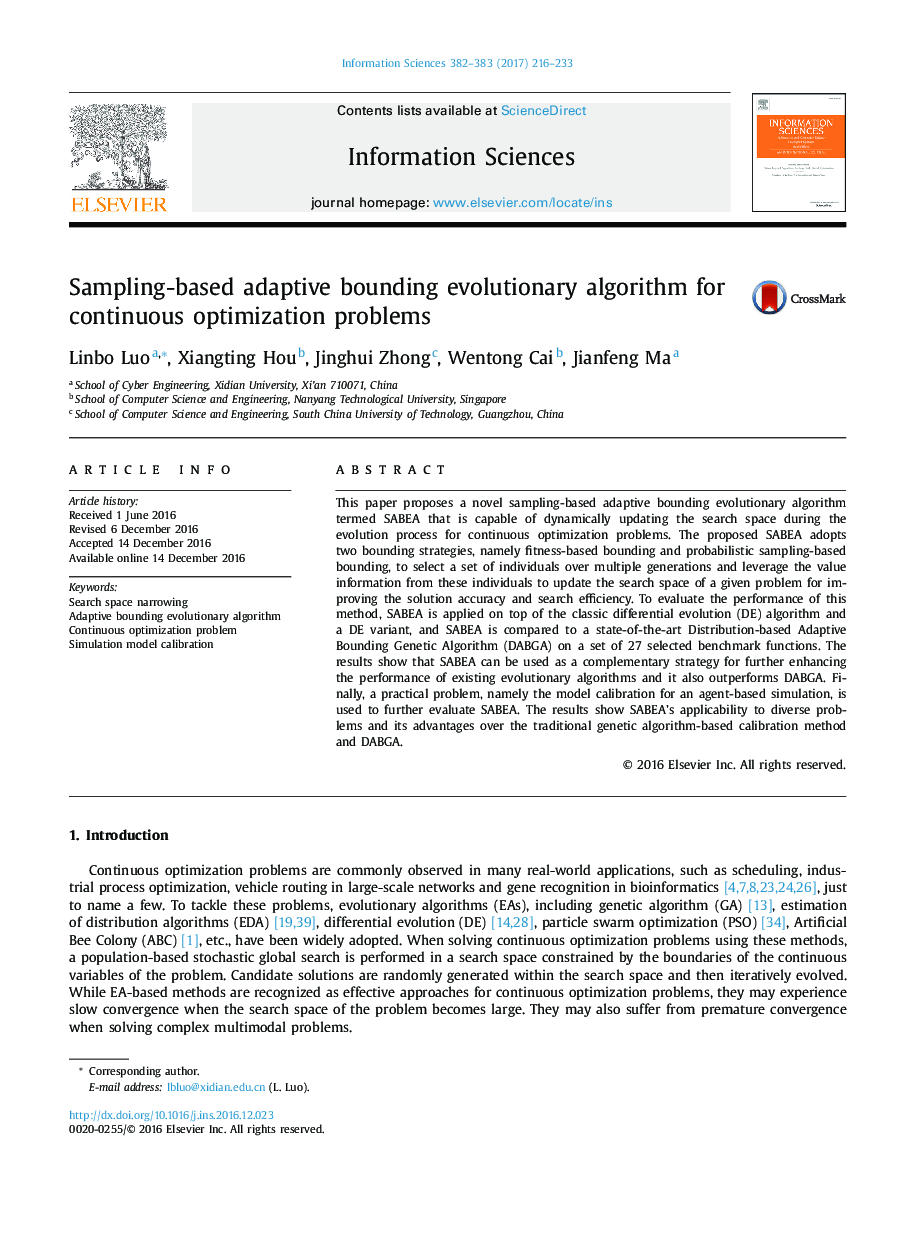| Article ID | Journal | Published Year | Pages | File Type |
|---|---|---|---|---|
| 4944607 | Information Sciences | 2017 | 18 Pages |
Abstract
This paper proposes a novel sampling-based adaptive bounding evolutionary algorithm termed SABEA that is capable of dynamically updating the search space during the evolution process for continuous optimization problems. The proposed SABEA adopts two bounding strategies, namely fitness-based bounding and probabilistic sampling-based bounding, to select a set of individuals over multiple generations and leverage the value information from these individuals to update the search space of a given problem for improving the solution accuracy and search efficiency. To evaluate the performance of this method, SABEA is applied on top of the classic differential evolution (DE) algorithm and a DE variant, and SABEA is compared to a state-of-the-art Distribution-based Adaptive Bounding Genetic Algorithm (DABGA) on a set of 27 selected benchmark functions. The results show that SABEA can be used as a complementary strategy for further enhancing the performance of existing evolutionary algorithms and it also outperforms DABGA. Finally, a practical problem, namely the model calibration for an agent-based simulation, is used to further evaluate SABEA. The results show SABEA's applicability to diverse problems and its advantages over the traditional genetic algorithm-based calibration method and DABGA.
Related Topics
Physical Sciences and Engineering
Computer Science
Artificial Intelligence
Authors
Linbo Luo, Xiangting Hou, Jinghui Zhong, Wentong Cai, Jianfeng Ma,
